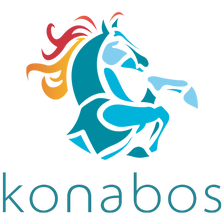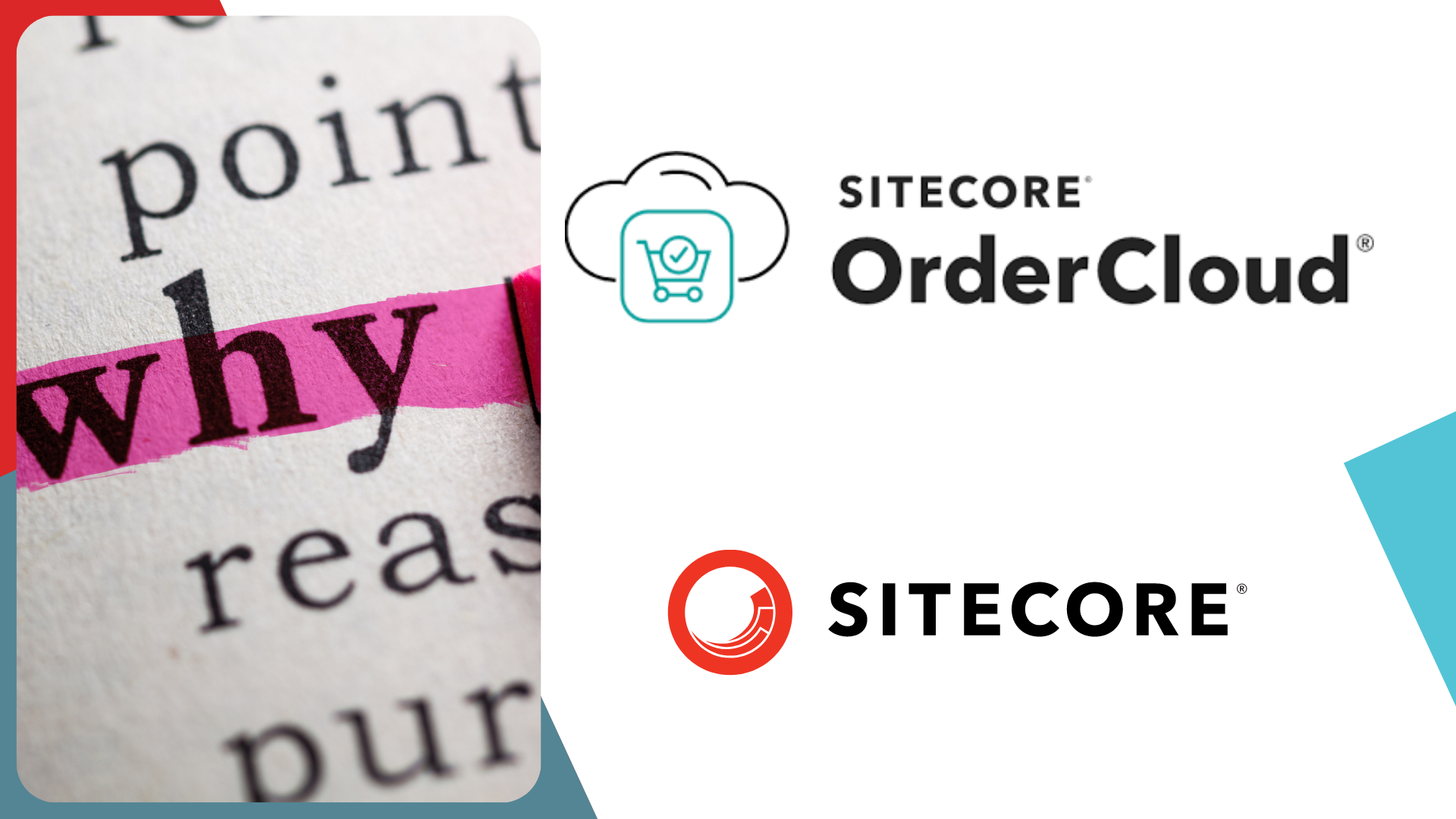Why choose Sitecore OrderCloud?
Akshay Sura - Partner
26 Jan 2022
In this video, we find out why you should choose Sitecore OrderCloud?. Is it the right fit for your organization?
Transcript
Note: The following is the transcription of the video produced by an automated transcription system.
Hi, this is Akshay Sura from Konabos. Today we'll be talking about why Sitecore OrderCloud, in our previous video, we talked about what is Sitecore OrderCloud based on, you know, the things I've read and things have been doing. Today we'll talk about why do you even need to consider an Sitecore OrderCloud knowing the market space at this moment in time with composable DXP in play, when the vendor lock is no longer valid in the sense that you could pick a provider today, implement your solution on it and in a week a month a year or so, if you would like to change the provider to another provider because of the API based nature of these providers. It's relatively simple to move over to another provider, and this gives you greater leverage as well as flexibility. So because of this, vendors are willing to do keep up with the technology, give you more options, give you a reason to stay at the same time for you. You don't have to be invested in it for 10 15 years long term. And this gives power both ways, both to the vendors as well as the customer. Which is you saying that we when we look at the current market space in terms of monolith commerce systems, you know that we are in a very rigid commerce strategy where you know the business needs to be flexible, agile and be able to adapt.
But we are unable to do that with the monolith commerce and that's been, you know, acknowledged by pretty much everyone. We also have to in this day and age, no one predicted COVID, and when COVID hit, no one knew how it's how it was going to impact, and it impacted e-commerce in a very different way. People started staying home, more ordering more e-commerce sites were inundated. And you know, the rest the shortages. Having a streamlined and flexible e-commerce strategy is super important to any organization with any monolith. You can't grow over time. It just becomes difficult and it's not cohesive, and the coupling between the different systems becomes extremely difficult. So this kind of makes us kind of think of it more from a composable DXP perspective, exactly what we can do now when you talk about commerce and being able to scale and expand your commerce business. Currently, because of the composable DSP Headless Commerce, you can implement different kinds of methodologies B2B, B2C. And again, we've gone through this before where we talked about being very omnichannel. You're selling on your mobile phone, you're selling on your website, your syndicating, your products to third parties, distributor channels, you need flexibility and all of that out of the box integrations, but also the capability for you to have all of the commerce features which you have been used to in the past.
So give more power to the buyers, the sales reps, the distributors as well as your end customer. And this isn't something easy meeting the meeting. The needs of the customer is kind of a constant challenge for any business, but that's something which we all have to strive to do. So being able to deliver to every channel, web, more mobile, even your brick and mortar social is very important. Future proofing your, you know, commerce implementation is also super important because you never know when things are going to change today. You might be B2B to my tomorrow, you might be B2C, and God knows what other different methods of selling will come up in the future. And being responsive enough to react to that is also super important. So thinking about it from a headless commerce, a composable platform perspective makes a lot of sense for any business. Now, a lot of things in terms of how commerce is implemented, scalability is always tricky. Predictability in terms of, hey, you know, during Thanksgiving or Black Friday, the sales are going to go pretty high. The platform needs to scale with you to take that. But at the times when it's not so high volume, you need to scale back down. It comes back into your costs, your run rate and the run costs being able to customize.
So not just from the perspective of, you know, integrations which we'll talk about in the extensibility part, but just being able to come up with different strategies. Whether you're talking about discounts, benefits for your customers, just in demand, dealing with your own customers, whether they're distributors or sales partners or sales reps, being able to change your business model or adapt to the changing business model is super important, and any platform which lets you do that is the platform you need to go with extensibility again, being able to add integrations with other tools, being able to modify certain parts of it, and being able to be agile. If you're marketing or a business product, part of the org needs to change. It should be relatively easy for you to make that change. You don't have to wait months or weeks. Even to be able to react to that is super, super important. Now, coming back to the wire, the article we talked about, you know, what is Sitecore OrderCloud? In the previous video, we talked about the challenges facing currently from a monolith perspective, as well as what we need in terms of a business to implement these strategies. Now why is Sitecore OrderCloud so different? Like I mentioned, a lot of players in this space who are headless, composable commerce.
A lot of them have a lot of the features that you're looking for. What your organization needs truly depends on the needs of your organization and no one else. Yes, there are a lot of commonalities with others in your sector. But you know what? At the same time, you have some unique features. The way you do business with their distributors might be different. The way you do business internally or the incentives you give might be a little bit different. Yes, there are commonalities, but the uniqueness of your business is yours. So, when you're evaluating different tools, you need to look at all the different scenarios, not just for now, but also the future. A lot of the times when we've been involved in these businesses who've been around for decades, depending on how digital they want to go, how their marketing and product teams react to things, they're like, Oh, we are just B2B, we're just going to do B2B. And that is that works because it's a proven system. But at the same time, when you look at it from a growth perspective, you don't know what's going to hit your business tomorrow or a year from now or two years from now. So thinking about, Hey, you know, I do want to do B2B, but maybe I want to do B2C or B2B2C or I want to do other different permutations and combinations.
You maybe want to try out a different model with your distributors or resellers. See if that works, if it works great, if it doesn't, you know, you always fall back on to your existing strategy. So, where Sitecore OrderCloud differentiates itself? Is depending on your unique business case. Whether you're large, your complex, it's distributed. However, you position yourself in terms of B2B or B2C, or B2X the way I call it. You should be able to implement it with the cloud if you set it up the right way. The products, the services and the way the orders flow between the user all the way to you and whether you are the supplier. If you're a manufacturer or you have an additional supplier whose products are also trying to upsell, everything would work. And this is where differentiates itself. It's not just a B2B, it's not just a B2C. It is B2X. You come up with a paradigm or a methodology of how you want to set your stores up, catalogues and sellers, and you can implement that. And that's where differentiates itself from a capabilities perspective. Again, like I mentioned, a lot of the headless vendors do a lot of the things from an e-commerce perspective. You just have to look at it from, you know, maybe you have specific data requirements.
Where does my data live? Do I own my data? Is it in a specific region? For some organizations, it is tremendously important. So looking at it from that perspective, scalability and all of these things, which you see on the slide, I can read them off. But at the end of the day, it truly depends on where your organization is today and where does it want to go tomorrow? From a capabilities perspective, you always have to vet out everything you need currently and everything you're looking for a couple of years down the road. So for it, being API based, headless, scalable on the fly is super important. Basically, for future proof your business from any business need you might foresee. And most of these SaaS based services are always improving. So when an upgrade comes up, you get the upgrade. You don't have to do, you know, unless there's breaking changes which are far few and often not as often it's not a big deal. And being omni channel really helps you. You're not tied to one channel at any point in time. So when you look. Based on the current trends, being able to be expeditious, you know, in terms of how fast you can push new features out. E-commerce is growing like crazy. It's only going to go higher. From what I see people like, I buy quite a few things for myself from Amazon and other online stores, and so will your customers.
And if you're a business who has been in traditional marketplaces where you have your distributor, channels, reseller channels, everything is going online from an e-commerce perspective, regardless of the type of business you might think. I'm entrenched in a business which is very handshake oriented. Yes, it's great, but there will be a segment of that business which would also be going online. So from a value perspective, it absolutely makes sense. It's super important that you start thinking about your e-commerce strategies. Headless e-commerce systems are the way to go and give it a chance. Look at Sitecore OrderCloud. Look at the features it provides. See if it fits your budget. See fit, fits your marketing vision. See if all the benefits you can get now and in the future. If you're looking to do, it can be taken care of by Sitecore OrderCloud. If you need any help, we are more than happy to help you. Please do give us a shout on social channels or reach out to us. I hope this was really useful on figuring out why Sitecore OrderCloud is different, what gives it the differentiating factors for you to consider it? And I hope this was useful. I hope you have a wonderful day.
If you have any questions, please get in touch with me. @akshaysura13 on Twitter or on Slack.

Akshay Sura
Akshay is a ten-time Sitecore MVP and a two-time Kontent.ai. In addition to his work as a solution architect, Akshay is also one of the founders of SUGCON North America 2015, SUGCON India 2018 & 2019, Unofficial Sitecore Training, and Sitecore Slack.
Akshay founded and continues to run the Sitecore Hackathon. As one of the founding partners of Konabos Consulting, Akshay will continue to work with clients, leading projects and mentoring their existing teams.


